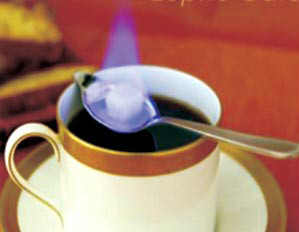Introduction to the crisp and refreshing taste of Kenya Jinchu Coffee growing Environment
According to local media reports, major coffee producing areas such as Niyeri and Migoli have negotiated agreements with buyers from China. Under the agreement, local coffee farmers will sell coffee directly to Chinese merchants for about 250 kenshillings (about $2.90) per kilogram.
Some vested interests protested against this practice. A fortnight ago, western companies warned coffee-makers through the media that they would face billions of kenshillings if they allowed the government's new deal to go ahead.
"It is clear that government officials lack understanding of coffee production and trading structures, and that these government policies will not only harm coffee practitioners in the country, but also disrupt coffee purchases worldwide," the companies said in a statement.
In response, Gachagua, a local official in Niyeli County, said that although many vested interests have called on local parliamentarians and heads of coffee cooperatives to unite against this policy, which can bring real wealth to farmers, he will not give in.
"I know (they have) a lot of money that will be used to destroy our efforts to liberate the peasants," Gachagua said."I even realize that there are people who want to bring down the current government in the next election, but this will not stop our efforts." There is no turning back. We are entrusted by the people."
Coffee is one of Kenya's main sources of foreign exchange, second only to tea, horticulture and tourism.
Last year, international coffee prices continued to fall as global supply increased, with Kenyan coffee prices at one point falling to their lowest level since 2007, severely affecting the livelihoods of millions of coffee farmers. Coffee prices have rebounded this year as dry weather in Brazil has led to an expected decline in coffee production.
Aromatic, rich, fruity, rich and perfect on the palate. Kenya coffee has a wonderful fruity flavor, with a blackberry and grapefruit flavor, and is a favorite of many coffee lovers. This coffee has an excellent medium purity, crisp and refreshing taste. Fresh flavor and best for iced coffee in summer. When tasting this coffee, if it is accompanied by fruit with acidity such as grapefruit, it will definitely give me the best coffee experience. "Less coffee, more fruit tea" is the common feeling many people have about this light roasted Kenyan coffee.
Kenya AA coffee beans Kenya's northern neighbor is Ethiopia, where the Arabica coffee tree originated, but coffee cultivation did not begin until the early 20th century. In the 19th century, missionaries introduced Arabica trees from Yemen, but they did not grow in large quantities. It was not until 1893 that the ancient "bourbon" coffee seeds from Brazil were introduced. That is to say, the current Kenyan coffee has Brazilian ancestry, and due to differences in water, climate and processing methods, Kenyan bean flavor and Brazilian bean flavor are aromatic, rich and fruity, and taste rich and perfect. Kenya coffee has a wonderful fruity flavor, with a blackberry and grapefruit flavor, and is a favorite of many coffee lovers. This coffee has an excellent medium purity, crisp and refreshing taste. Fresh flavor and best for iced coffee in summer. When tasting this coffee, if it is accompanied by fruit with acidity such as grapefruit, it will definitely give me the best coffee experience. "Less coffee, more fruit tea" is the common feeling many people have about this light roasted Kenyan coffee.
In addition to the obvious and fascinating fruit acidity, Kenya coffee is mostly grown by small coffee farmers in a variety of different environments, with different climates and rainfall each year, bringing a variety of distinct and unique personalities. Take the AAPlus grade "KenyaAA+Samburu" as an example. Samburu from 2001 has a strong aroma of dark plum, which is not high in acidity and has a strong taste. Samburu newly harvested in winter of 2002 presents a completely different flavor. Mulberry berry and green plum, accompanied by a little spicy flavor. After drinking, it has a sweet aroma of green tea. The acidity is slightly higher than that of the previous year, and the taste is still strong. The usual Kenyan flavors are not intense, but have fruity bright flavors, some with spice and some with red wine. That's what Kenya does. It's what keeps coffee fans excited and surprised.

Important Notice :
前街咖啡 FrontStreet Coffee has moved to new addredd:
FrontStreet Coffee Address: 315,Donghua East Road,GuangZhou
Tel:020 38364473
- Prev

Introduction to the planting environment of Bolivian coffee with dry flavor of almonds
(1) the Movement for Socialism (Movimiento Al Socialismo): founded in 1995. The ruling party. The emerging leftist political parties are widely participated in the national democratic forces. Oppose neoliberal economy and economic globalization. The largest political force in the Bolivian parliament. The party's leader is President Juan Evo Morales Emma (Juan Evo MORALES Ayma). (2) Poly
- Next

Panamanian Coffee characteristics Fine Coffee Bean Flavor taste introduction to the planting Environment of Manor production area
The current Constitution of Panama entered into force on 11 October 1972 and has been amended four times in 1978 and 1983, 1994 and 2004. The Constitution stipulates that the three powers of the state shall be separated, and the President shall be the head of state and shall be directly elected for a term of five years without re-election, but may be contested at other terms.
Related
- Detailed explanation of Jadeite planting Land in Panamanian Jadeite Manor introduction to the grading system of Jadeite competitive bidding, Red bid, Green bid and Rose Summer
- Story of Coffee planting in Brenka region of Costa Rica Stonehenge Manor anaerobic heavy honey treatment of flavor mouth
- What's on the barrel of Blue Mountain Coffee beans?
- Can American coffee also pull flowers? How to use hot American style to pull out a good-looking pattern?
- Can you make a cold extract with coffee beans? What is the right proportion for cold-extracted coffee formula?
- Indonesian PWN Gold Mandrine Coffee Origin Features Flavor How to Chong? Mandolin coffee is American.
- A brief introduction to the flavor characteristics of Brazilian yellow bourbon coffee beans
- What is the effect of different water quality on the flavor of cold-extracted coffee? What kind of water is best for brewing coffee?
- Why do you think of Rose Summer whenever you mention Panamanian coffee?
- Introduction to the characteristics of authentic blue mountain coffee bean producing areas? What is the CIB Coffee Authority in Jamaica?

